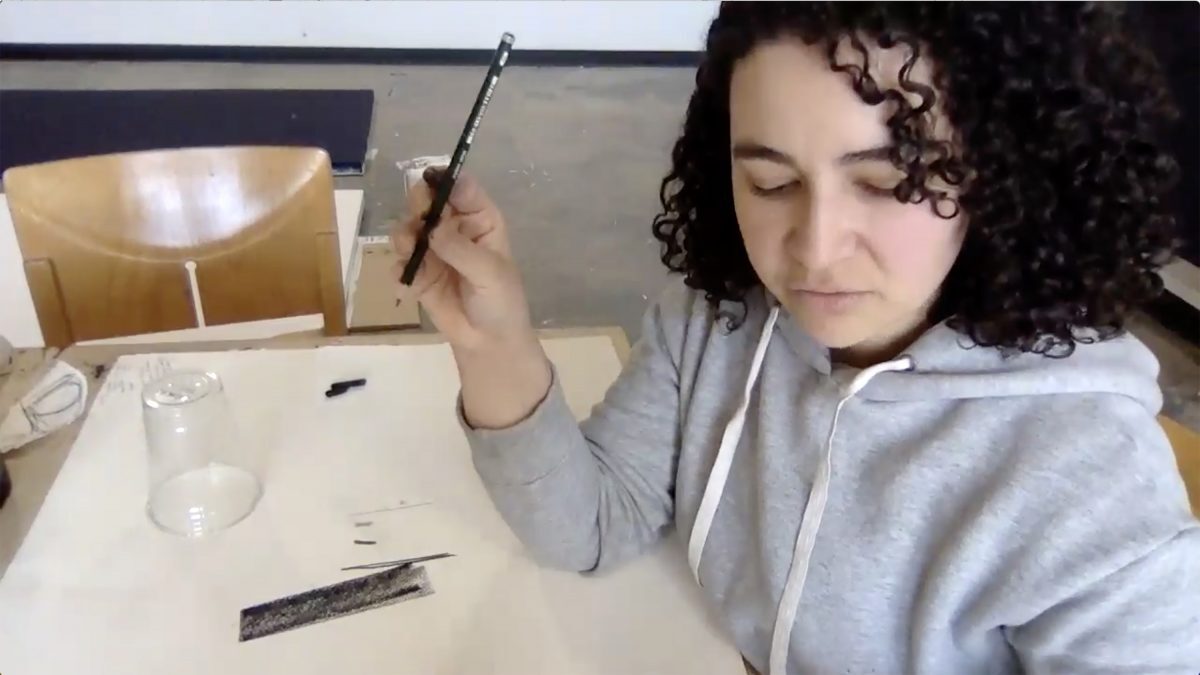Bethany Collins moved from one part of Chicago to another in March. “Moving day during a pandemic is definitely worse,” she tells me. But her new neighborhood offers a more walkable part of the city and a daily walk has become part of the quarantine regimen. Collins and I laugh about the dance we all practice with our fellow citizens, “so many navigations, choices” as we try to maintain an appropriate social distance along the boulevards. Collins looks toward a future when we “learn to be at ease around others again.”
Upcoming exhibitions have been postponed. She teaches online at the University of Chicago. A course in Drawing Concepts has been the most troublesome to figure out. “It feels silly trying to show them how to draw from a distance, while I’m looking over my shoulder at the screen.” For a Foundations course, she’s giving them directives by conceptual artists such as Yoko Ono and Sol LeWitt to follow. The next part of the exercise is to write directives for classmates to follow. “It’s a lesson in relinquishing control.”
What has she learned about online teaching? “I’ve learned that it isn’t impossible.”
Teaching remotely, she feels her priorities have changed to accomplish learning at a distance. “Like everyone, I find myself in more of a caretaker role,” Collins says. “I want to be present to what the students are sharing. So with fifteen strangers I try to practice kindness, flexibility, and understanding.” This sounds like a directive Yoko Ono might write for teachers, or for the world.
With exhibitions on hold, Collins is investing her time in research. At CAM in 2019, her exhibition Chorus included references to traditional patriotic songs whose melodies remained constant while the lyrics were rewritten throughout history for different political causes. “My Country ‘Tis of Thee,” was formerly “God Save the Queen,” for example. Collins is currently researching versions of the official national anthem, “The Star-Spangled Banner,” as well as “Dixie,” the unofficial anthem of secession.
Language is Collins’s subject and primary material. Her Noise series, panel paintings containing obsessively rewritten lyrics, cluster text to prompt reconsiderations of the meanings of songs that have survived through the mutations of history. At CAM, texts of two translations of a passage from The Odyssey were hung as diptychs. The translations, from 1852 and 1980, tell of Odysseus’s return to the shores of Ithaca, and his inability to recognize the home he left twenty years prior. Collins copied the texts by hand, and then proceeded to erase all but one particular phrase. The delicate handwriting, abused by erasure, surrounds the remaining texts, the translations’ differences and variations standing out. Collins connects interpretations of Odysseus’s feeling of loss with that of many American’s—our own feeling of awakening to a home we no longer recognize.
“I started a series after the 2016 election based on post-apocalyptic literature,” she says. “I was looking for the language of The End, or an end.” She took pages from various sources—from Octavia Butler’s short story ‘Speech Sounds’ to Jimmy Carter’s 1980 concession speech—and erased all but the exact moment where writers described the end of the world.
She’s far from making any art about our current apocalypse, or post-apocalypse, although her past reading has given her some perspective. “Strange, it’s not the apocalypse we expected.” For Collins, art of this moment will come later. “There’s not yet a collective agreement about this moment that I can sift through, edit, disagree with, make sense of. I need the language of others to sift through, and sifting through takes time.”
—Eddie Silva
